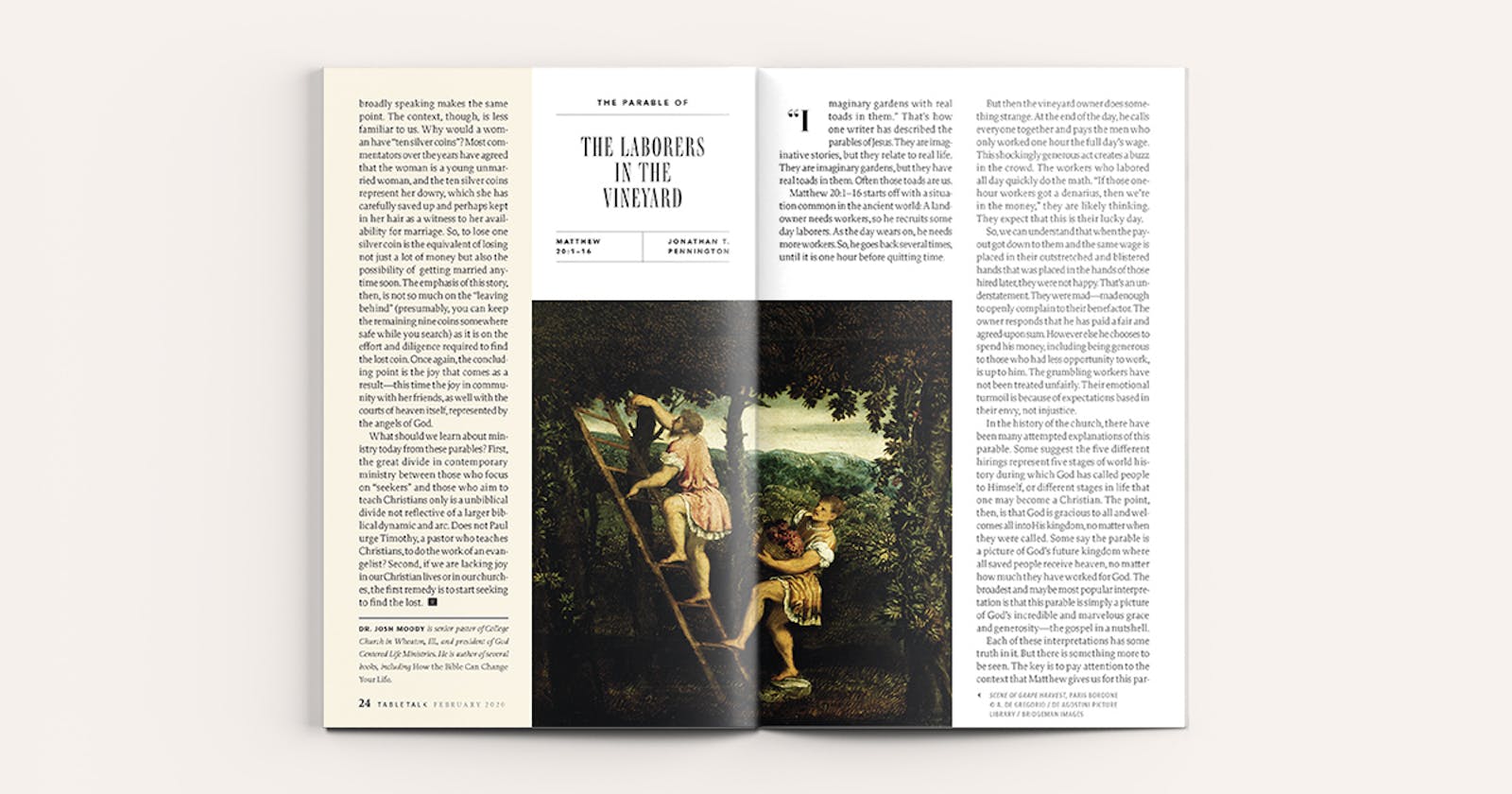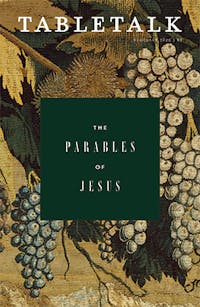
Request your free, three-month trial to Tabletalk magazine. You’ll receive the print issue monthly and gain immediate digital access to decades of archives. This trial is risk-free. No credit card required.
Try Tabletalk NowAlready receive Tabletalk magazine every month?
Verify your email address to gain unlimited access.
“Imaginary gardens with real toads in them.” That’s how one writer has described the parables of Jesus. They are imaginative stories, but they relate to real life. They are imaginary gardens, but they have real toads in them. Often those toads are us.
Matthew 20:1–16 starts off with a situation common in the ancient world: A landowner needs workers, so he recruits some day laborers. As the day wears on, he needs more workers. So, he goes back several times, until it is one hour before quitting time.
But then the vineyard owner does something strange. At the end of the day, he calls everyone together and pays the men who only worked one hour the full day’s wage. This shockingly generous act creates a buzz in the crowd. The workers who labored all day quickly do the math. “If those one-hour workers got a denarius, then we’re in the money,” they are likely thinking. They expect that this is their lucky day.
So, we can understand that when the payout got down to them and the same wage is placed in their outstretched and blistered hands that was placed in the hands of those hired later, they were not happy. That’s an understatement. They were mad—mad enough to openly complain to their benefactor. The owner responds that he has paid a fair and agreed-upon sum. However else he chooses to spend his money, including being generous to those who had less opportunity to work, is up to him. The grumbling workers have not been treated unfairly. Their emotional turmoil is because of expectations based in their envy, not injustice.
In the history of the church, there have been many attempted explanations of this parable. Some suggest the five different hirings represent five stages of world history during which God has called people to Himself, or different stages in life that one may become a Christian. The point, then, is that God is gracious to all and welcomes all into His kingdom, no matter when they were called. Some say the parable is a picture of God’s future kingdom where all saved people receive heaven, no matter how much they have worked for God. The broadest and maybe most popular interpretation is that this parable is simply a picture of God’s incredible and marvelous grace and generosity—the gospel in a nutshell.
Each of these interpretations has some truth in it. But there is something more to be seen. The key is to pay attention to the context that Matthew gives us for this parable. The story that precedes our parable is about a rich synagogue leader who ends up not following Jesus because his love for his possessions was too great (19:16–22). In response to this, the disciples are shocked. Jesus then promises them staggering rewards for giving up everything they had to follow Him (vv. 23–30). This promise that the disciples will sit on twelve thrones consumes the disciples’ thoughts so much that shortly thereafter, James and John are angling to be the ones to sit on the thrones closest to Jesus (20:20–28).

This context shows us that the parable is hitting right at our hearts, at the twin issues of self-congratulation and envy. When the young ruler goes away empty-handed but then the lowly disciples are promised to be rulers, it was impossible for the disciples not to be a little self-congratulatory, to take a little pride in their wise accomplishment, their better choice to follow Jesus. In the parable, Jesus reminds them that all that they have is from God, that all their blessings are from God’s generosity, not their own doing. The disciples are no better than the rich man. At the same time, Jesus presses right into our hearts, which are prone to envy. Jesus challenges His disciples not to look to what others have and become bitter and jealous. Rivalry is soul-destructive because all of life is a gift from God.
So, this parable gives us a vision for God’s generous grace toward us and toward others. Life is found when we fix our eyes not horizontally on what others have but vertically on the generosity of the whole-earth landowner, King Jesus, who calls us friends and who gives wisely and generously.
